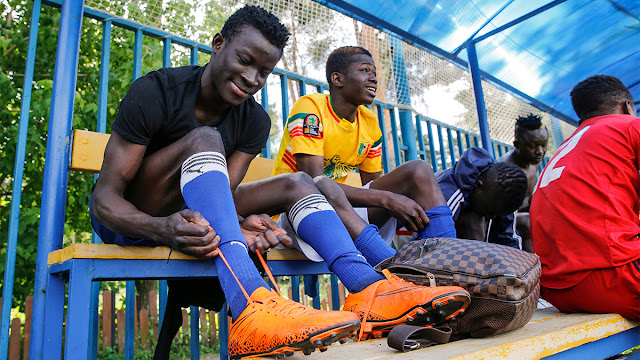Are you SLACKTIVIST
Are you SLACKTIVIST?
Facebook’s spaces of political participation in Uganda.
As a student of Social media psychology let me share with my readers some of the predominant traits and characteristics of Facebook spaces use in Uganda for political participation. The choice the of subject of politics and Facebook social media platform for mediation are motivated by the fact that the most central topic on Facebook tend to be political. Facebook is by far a platform with the capacity to mould public discourse in simple terms Facebook is a platform for political deliberation and democratic decision-making.
In order to help you identify the specific characteristics of people who use Facebook spaces of participation, I will introduce these three terms and later explain it with our local Ugandan context.
1. Slacktivism
2. Flaming wars
3. Deliberation
Everyone who participates on Facebook belongs to one or more of the mentioned characteristics, the starting point is a post or an article on a Facebook wall which is inviting users for comments, likes, shares etc. The way we contribute to a post defines which class of the three distinctions you may belong. But take note that individuals may oscillate between any of the above modes depending on the quality of the post. Personally, I tend to do that a lot for example in a post my comment may be perceived as venomous in one comment and very deliberative in another post. Basically, this shift in postures and tone of language is caused by the quality of the post, in the simple term “junk in junk out”.
Slacktivism: You are all well versed with the phrase “Slay queen “likewise Slacktivism is online participation that requires little personal effort and is directed at achieving personal satisfaction rather than bringing about change. The term is used to “describe feel-good online activism that has zero political or social impact”. A Slacktivist is a Facebook user who is a very passive participator with an illusion of having a meaningful impact on the world without demanding anything more than, for example, people who show support for a cause by simply clicking a like-button, sharing a status or changing their profile picture or joining a Facebook group for entertainment and gossip fishing. Unfortunately, the majority of Ugandans fall in this category partly because of the groups like MAMA TENDO and other fun factor groups which deliberations have zero impact on bringing about any political or social change.
Flaming wars: Is obvious as it coined, this characterized by an overly heated and unthinking series of rants among contributors on a Facebook post. What you read is profane language, obscenity, dehumanization, vulgarities and insults. These comments tend to be short response exchanges online with particularly no quality debate. I guess, you by now can put two and two together a big percentage of PP supporters belong to this calibre of Facebook participators, their intentions are not to debate but inflame, provoke and threaten in Facebook space rather than reflecting on the message in the post, they use emotions to comment with brazen barrages of assaults on a Facebook post. Typically, like Slacktivism, these categories of users have no political impact and real-life outcome.
Deliberation: This is the last category of online political participation, which is a result of careful deliberation, it is encouraged by reason. “Reasoned and purposeful” communication is taken to involve lengthy sentences of constructive arguments by participants, in turn, entails that people respond to each other’s comments. This is not to negate that fact that they disagree, but they do it respectfully as opposed to more often expressed unmotivated disagreement. Ideally, this the kind of users that we should strive to graduate too because, this is a space where public opinion could be formed out of the rational public debate, enhancing consent and decision-making. The exchanges are progressively deliberative and have the possibility to facilitate democracy and affect policy and have direct practical implications. Now this kind of participants are scarce in Ugandan Facebook space participants, though with some the exception, I find posts by Ugandan based Andrew Mwenda, and Lord Mayor Erias Lukwago very deliberative. The rest of the mediations are either comical or for entertainment value. Probably the deliberative debates exist in Ugandan twitter space which, I am not entirely a proponent of because it promotes a bad reading culture.
To conclude the intention of this piece is to encourage Ugandans to become online deliberators rather than slacking and flaming Facebook wars because at the end of the day these purposeless participations of resharing gossips, nude videos, fake news and conspiracy theories will never bring our leaders to start using the Facebook for democratic decision-making. Because they are wary of users whose intentions are to express themselves in profane and obscene languages instead of deliberating.
Atocon Speaks!




Comments
Post a Comment